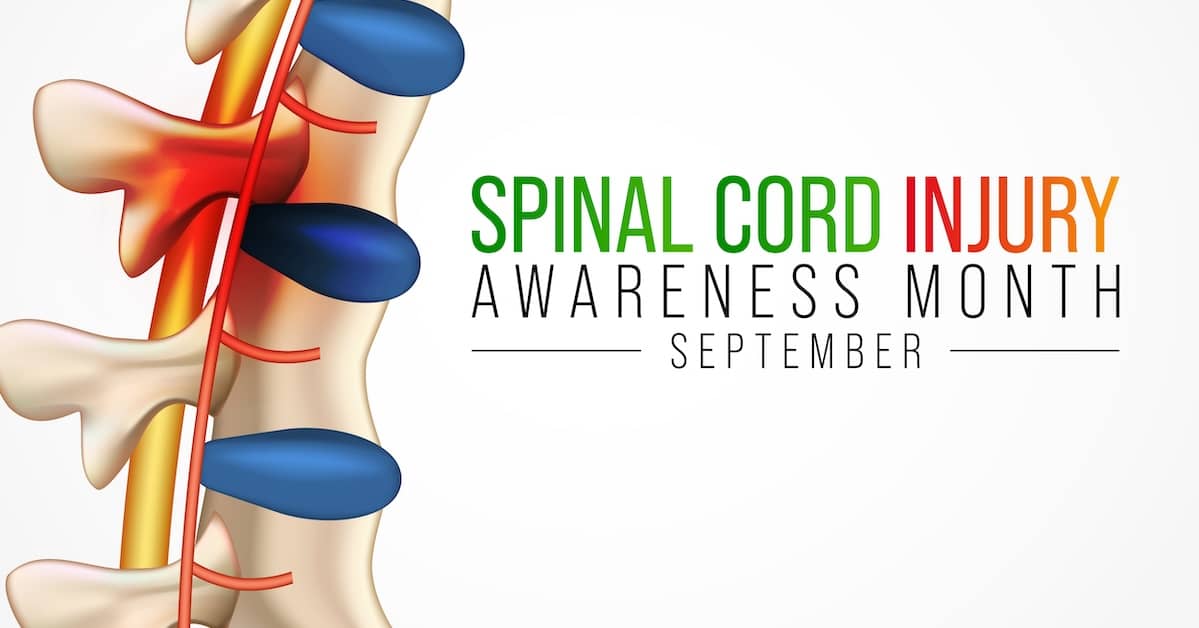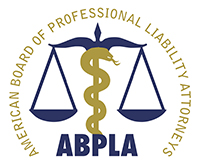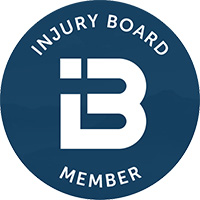
UTI and Spinal Cord Injury
Urinary tract infection (UTI) occurs when bacteria enter the urinary tract—typically by way of the urethra. Common symptoms of UTI include burning while urinating, frequent and urgent needs to urinate, and lower abdominal pain. These may be accompanied by fever, chills, and back pain when the infection reaches the kidneys.
Spinal Cord Injury and UTI: What Is the Link?
There are different types and levels of severity of spinal cord injuries (SCI). The specific vertebra affected by a spinal cord injury—along with the degree of damage—plays a direct role in the symptoms that may follow. One of these symptoms may be UTI.
Many SCIs can lead to conditions that impact the bladder’s ability to properly store and empty urine. Incomplete emptying of the bladder and residual urine can increase the risk of UTIs. These risks are compounded by the loss of bowel and bladder control that often accompanies spinal cord injury—issues that can produce an environment where bacteria thrive, further increasing the risk of UTI in individuals with SCI.
In addition to the risks posed by a loss of bowel and bladder control, some of the treatments used for the management of these conditions can increase the risk of UTI after a spinal cord injury. Common treatments, such as catheters, are not very good at preventing bacteria from entering the urethra. In fact, the CDC reports that around 75% of UTIs developed in hospitals are associated with catheter use.
Do You Need a SCI Attorney?
If you have sustained a spinal cord injury in an accident, you may be entitled to seek compensation for all related medical expenses—including treatments for UTI and other complications that can arise following damage to the spine. Talking to one of our experienced Providence SCI attorneys can help you understand your rights and options, and assist you in determining how to proceed.
Call Mandell, Boisclair & Mandell at 401-273-8330 to schedule a FREE and confidential consultation today. Located in Providence, we represent individuals and families dealing with serious injuries throughout Rhode Island and Massachusetts.
UTI and Spinal Cord Injury: Potential UTI Complications
Recurrent or untreated urinary tract infections can lead to serious—potentially fatal—complications. These include:
- Kidney Infection (Pyelonephritis). Symptoms of a kidney infection include fever, chills, back pain, and nausea. Left untreated a kidney infection may permanently reduce kidney function and lead to chronic kidney disease, which increases the risk of developing anemia, high blood pressure, and cardiovascular disease.
- Bladder Stones. Bladder stones can be extremely painful. They can also create urinary blockage, increasing the risk of additional UTIs and further complications.
- Sepsis. If bacteria from a UTI enters the bloodstream, it can lead to sepsis—a life-threatening response to infection that can lead to organ damage, tissue failure, and death. Symptoms of sepsis include heart rate irregularities, body temperature fluctuations, confusion, and severe abdominal pain.
Preventing UTI complications following spinal cord injury requires proactive management of bowel and bladder issues. Routine monitoring, proper catheter care, and regular hygiene practices can all help to reduce risks.
When a UTI is related to SCI, proactive management of complications may require medical assistance. Unfortunately, the costs associated with managing SCI complications can be incredibly high. If your spinal cord injury was the result of someone else’s negligence, you may be entitled to seek compensation that covers these—and all related—healthcare costs. During your FREE spinal cord injury compensation consultation, we will carefully assess your damages to help you determine how much your case may be worth.
More Than UTI: Additional Spinal Cord Injury Complications
In addition to UTI, potential complications of spinal cord injury include:
Paraplegia and Quadriplegia
Damage to the thoracic spine (T2 through T12) can impact communication between the brain and the legs. This may lead to numbness and tingling in the limbs, weakness, or, in severe cases, paraplegia. Thoracic spine injuries can also impact bowel and bladder control.
Damage to the cervical spine (C1 through C8) disrupts communication between the brain and all of the limbs. This can result in weakness or paralysis in the arms, hands, trunk, and legs. In severe cases, it can lead to tetraplegia or quadriplegia. Cervical spine injuries can impact respiratory abilities, result in speech difficulties, and reduce or eliminate bowel and bladder control.
Body Temperature Dysregulation
Damage to both the thoracic and cervical spine can make it impossible to regulate the body’s temperature. This condition is known as autonomic dysreflexia. Most common in injuries at or above the T6, autonomic dysreflexia can result in high blood pressure, changes in skin color and sensitivity, severe headaches, and more. Left untreated, autonomic dyslexia increases the risk of overheating and hypothermia in addition to seizures, heart failure, respiratory failure, hemorrhagic stroke, and other potentially fatal complications.
Muscle Spasms
An estimated 65% to 93% of people with spinal cord injuries experience muscle spasms. These involuntary muscle contractions are often painful. They may also affect mobility, prohibit full breathing, create dangers when driving, cause urine leakage, and generally impact daily activities.
Emotional and Psychological Complications
Spinal cord injury can cause more than physical concerns. Coping with the sudden loss of mobility and all of the additional complications possible after SCI can also have a profound impact on your emotional and psychological health. Anxiety, depression, frustration, and anger are all common after debilitating injuries, often requiring professional support to overcome.
Professionals like counselors and psychiatrists are often needed during and after recovery from a spinal cord injury. Other healthcare professionals—including at-home nurses—and advanced or ongoing therapeutic treatments are typically required during SCI recovery as well. The cost of these services, along with lost wages, home modifications, adaptive technology, and pain and suffering, should all be taken into account when you file a spinal cord injury lawsuit.
At Mandell, Boisclair & Mandell, we take time to understand all of the complications you are experiencing. This helps ensure we get a full view of how your injury has impacted your life and allows us to properly calculate your damages. Recognized as one of the Best Law Firms in America, we have helped our clients secure millions in settlements and verdicts. We encourage you to reach out today, let us know about your experience, and allow us to help you seek the compensation your injury demands.
Schedule a FREE Case Review Today!
If you have developed a UTI after a spinal cord injury or are experiencing any of the other complications related to SCI, Mandell, Boisclair & Mandell is here to help. Our firm has nearly 50 years of experience assisting victims of serious and debilitating injury seek justice. We welcome the opportunity to meet with you (without any obligation on your part), listen to your story, and help you decide on the best course of action.
Call our Providence office or contact Mandell, Boisclair & Mandell online to schedule your free case review today. We proudly serve the communities of Cranston, Pawtucket, Warwick, and all nearby areas of Rhode Island and Massachusetts.





























